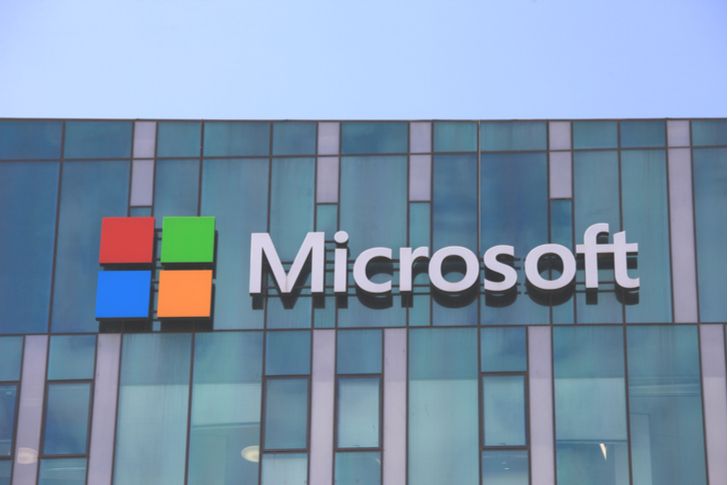I’ve spoken warmly about technology titan Microsoft (NASDAQ:MSFT) over the last several months. MSFT stock is a prime example that you don’t need to roll over for your industry’s alpha dog. In this case, it’s Apple (NASDAQ:AAPL). Instead, management has pushed forward with innovations and new business ventures, driving Microsoft’s stock to consistently robust returns.
The impact in this new Microsoft, driven in large part by CEO Satya Nadella, is obvious. Since Nadella was announced as the next chief executive on Feb. 4, 2014, MSFT stock gained over 232%. Prior to this announcement, MSFT shares hadn’t moved much since they hit a multi-year peak in November 2007.
Everyone in the markets understands, though, that the good times can’t last indefinitely. Now, the fear is that Microsoft stock is too stretched.
Just recently, noted investors and well-publicized personas Jim Cramer and Marc Chaikin concurred that investors should consider taking profits in MSFT stock. Cramer piped in that Nadella selling a large portion of his shares was a red flag.
Looking at the raw numbers, I can’t disagree with their assessment of Microsoft’s stock. On Aug. 10, Nadella cashed in 328,000 shares at $109.44 a pop. Indeed, that’s a gargantuan amount considering that the previous high this year was EVP Margaret Johnson, at 47,000 shares sold.
If you’ve followed my recent work, you’ll know I’m not a big fan of insiders selling their stock if it aligns with a broader trend.
On the other hand, Microsoft has fundamentally improved their business. Morgan Stanley analyst Keith Weiss believes MSFT stock can match its rival and hit a $1 trillion market capitalization soon. Weiss remains confident that the “improvement in gross margins, continued opex discipline and strong capital return” will provide significant upside potential.
With good arguments on both sides of the aisle, which one should you follow? Is Microsoft stock a buy or should investors hold off on being bullish?
Don’t Fight the Tape With MSFT stock
I get the bearish argument in the sense that you want to be smart with your money. Although I’m a strong proponent of MSFT stock, I’m not going to let that cloud my judgment. Once emotions get in the way, bad things can happen.
So if you want to trim some shares in Microsoft stock, I’m not against doing so. In this situation, who better to follow than Nadella himself? He clearly sees an opportunity to profit from the stock, and you should too, considering that we’re near all-time highs.
Where I would disagree is if you’re considering shorting shares. While stock in Microsoft may suffer weakened trading, I don’t think we’ll see a shocking correction.
Primarily, the company’s next-generation ventures have experienced substantial traction. A particular highlight is their cloud platform Azure, which grew 89% year-over-year in the most recent quarter. With that growth, Microsoft is now second only to Amazon (NASDAQ:AMZN) in the public cloud sector.
In the long run as well, MSFT stock has successfully broken away from its legacy businesses, as the company has successfully integrated its new units. For instance, in 2014, sales from personal computing accounted for over 44% of total corporate revenue. In fiscal 2018, that allocation dropped to 38%.
Taking its place is cloud computing, and what the company terms “productivity and businesses processes.” For the former category, sales jumped from $21.7 billion in 2014 to $32.2 billion in 2018. The latter segment saw an increase from nearly $27 billion to just under $36 billion over the same time frame.
But the beauty of buying stock in Microsoft is that the company’s legacy business isn’t a liability, but a steady contributor. While its allocation has decreased, personal computing was still the biggest individual component at $42.3 billion.
With diverse strength like this, you shouldn’t go negative on MSFT stock.
But Be Aware of Competitive Risks for MSFT
Ultimately, I think Microsoft stock still has remaining upside, even from its currently elevated position. That said, I’d be remiss if I didn’t mention the competitive risks toward the Microsoft stock price.
I’ll start with the low-hanging fruit first: the broader tech sector is rife with competition. Industries such as artificial intelligence, deep machine learning, automation, big data and the cloud are filling up with eager debutantes. Furthermore, MSFT’s rivals will obviously never stop attempting to dethrone it in these lucrative markets.
But even here, the company’s strong fundamentals should keep several challengers at bay. For one thing, MSFT’s balance sheet is formidable. It has nearly $12 billion in cash. Combined with marketable securities, we’re talking liquid assets of almost $134 billion. Plus, it features excellent profitability margins and decent overall revenue growth.
I get the argument that the easy money in Microsoft stock is gone. But that doesn’t mean the money as a whole is gone. It’s just going to take a little more time and patience.
As of this writing, Josh Enomoto did not hold a position in any of the aforementioned securities.

